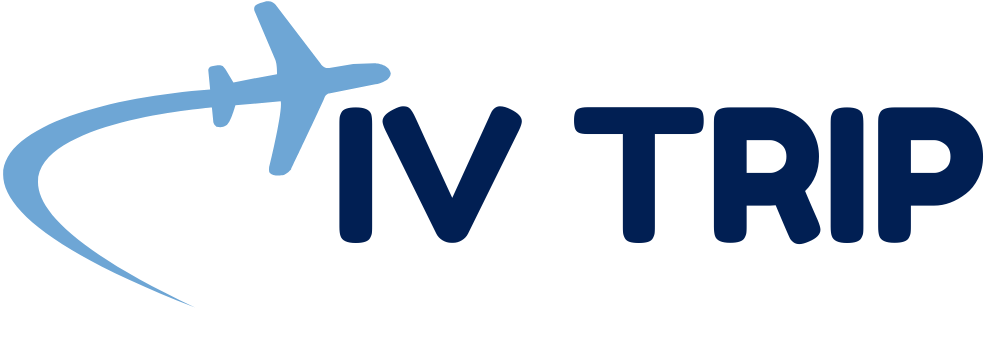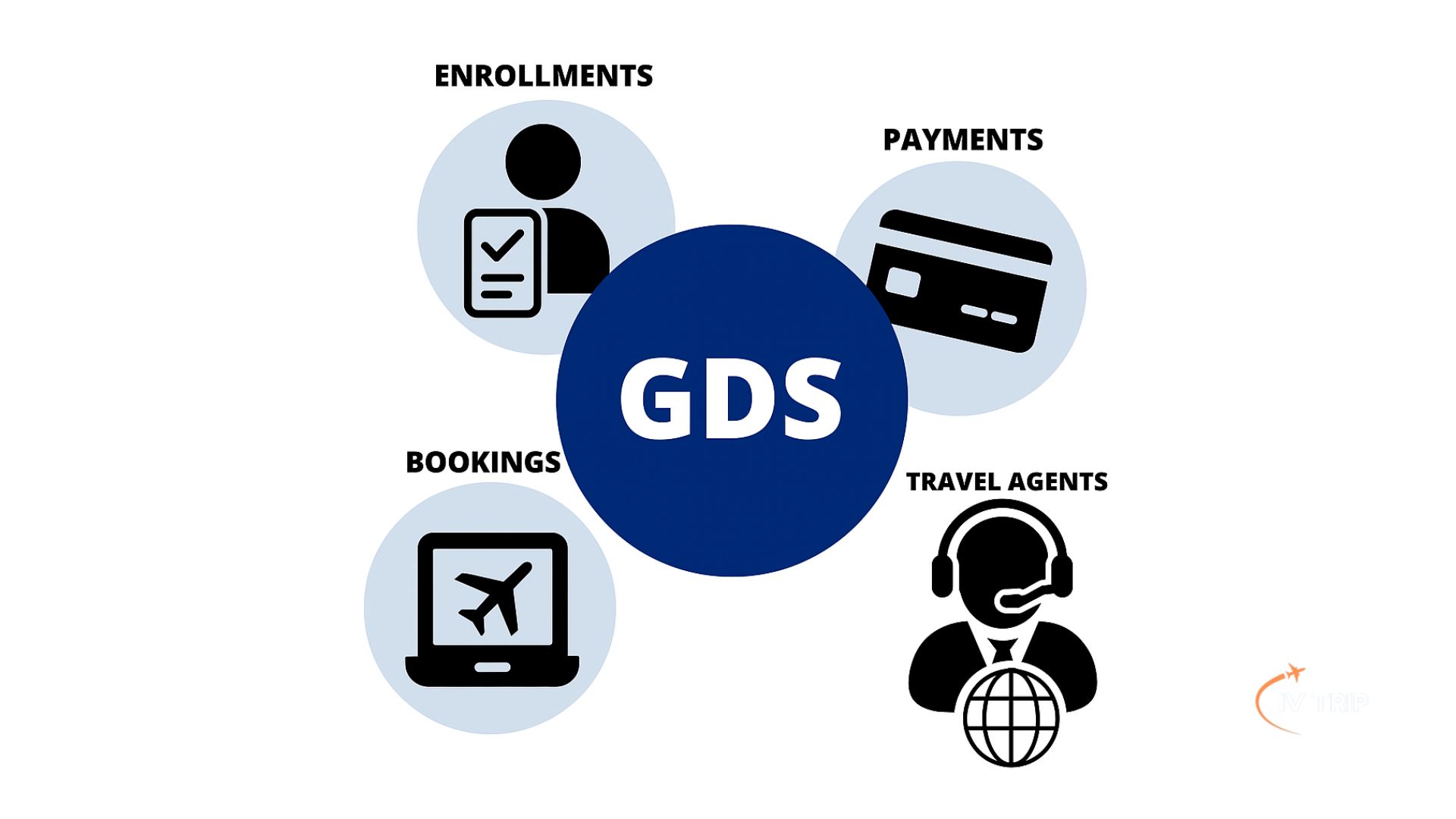Custom Travel Agency Software vs Off-the-Shelf Solutions: Which is Better?
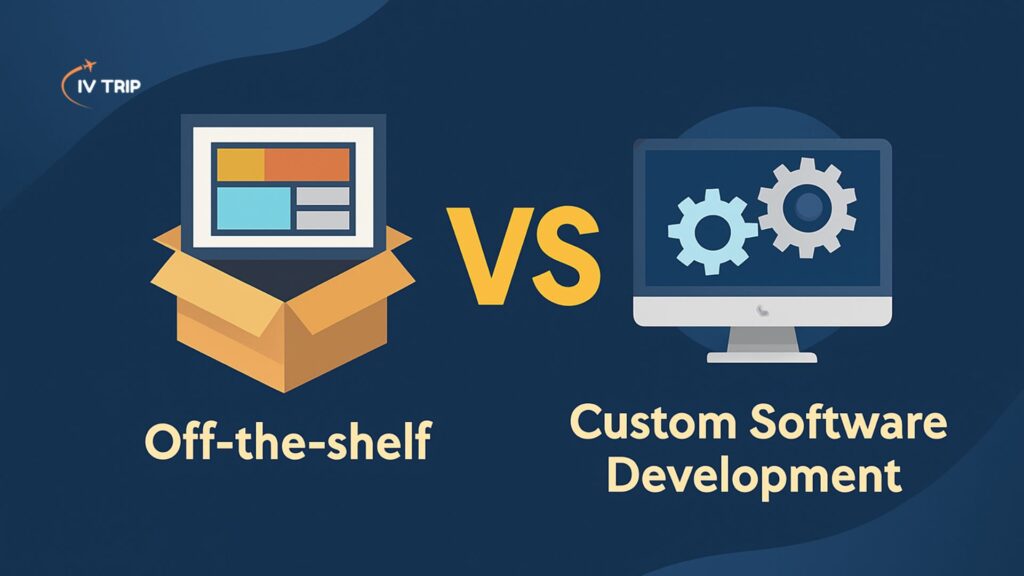
Choosing between off the shelf software vs custom software can redefine your travel business — if you pick the right fit.
In today’s fast-evolving travel industry, travel agencies must choose the right tools to stay competitive. Choosing between custom travel agency software and off-the-shelf solutions is one of the most critical decisions. While both have merits, the best choice depends on your agency’s size, goals, and operational needs.
In this comprehensive guide by IV Trip, a leading travel agency software development company in Bangladesh, we’ll break down everything you need to know about off the shelf software vs custom software and help you make the right decision for your travel business.
What is Off-the-Shelf Travel Software?
Off-the-shelf travel software is a pre-designed solution created for mass use. It usually includes essential features that cater to general travel agency needs. These are plug-and-play systems that require minimal setup time. This category is a significant part of the discussion when evaluating off the shelf software vs custom software.
Common Features:
- Basic booking and itinerary tools
- Invoicing and payment integration
- CRM and customer data storage
- Integration with GDS (Global Distribution System)
- Email and SMS automation
- Standard reporting tools
These systems are often cloud-based and provided under a subscription or SaaS model, allowing agencies to scale their usage without primary technical know-how. However, understanding the limits of these solutions is key to properly assessing off the shelf software vs custom software.

What is Custom Travel Agency Software?
Custom travel agency software is designed specifically for your agency’s unique workflow. It is tailored by a travel agency software development company like IV Trip to meet your operational goals and client expectations. When comparing off the shelf software vs custom software, this tailored nature offers a strong argument in favor of going custom.
Examples of Custom Features:
- Multi-currency or multilingual support
- Unique branding and customer journey customization
- Tailored dashboards and business analytics
- Custom user roles and permissions
- Deep API integrations with third-party tools (e.g., Amadeus, Sabre, Facebook Ads)
- AI-powered tools like chatbots or personalized itinerary builders
Custom systems can be built on your existing tech stack or entirely from scratch, offering ultimate control and performance. This makes custom solutions a clear winner in many off the shelf software vs custom software debates.
Pros and Cons of Off-the-Shelf Travel Software
While often seen as the easy choice, it’s essential to understand the full picture in the off the shelf software vs custom software comparison.
✅ Pros of Off-the-Shelf Travel Software
- Fast Setup and Deployment: Your system can be up and running in days or weeks. This is a huge advantage for new agencies or those needing a quick digital solution.
- Lower Entry Cost: The initial financial outlay is much lower since you’re typically paying a monthly or annual subscription. This makes it ideal for small agencies, startups, or those with tight budgets looking for basic travel business software.
- Access to Standard Features: You immediately gain access to core functionalities like ready-made booking templates, GDS access, and basic CRM tools, allowing you to start operations quickly.
- Reliable Vendor Support (Often): Most reputable off-the-shelf vendors offer online help centers, ticketing support systems, and community forums.
- Regular Updates: Vendors usually provide regular updates, bug fixes, and sometimes new features, which are automatically rolled out to all users.
❌ Cons of Off-the-Shelf Travel Software
- Lack of Flexibility (One-Size-Fits-All): This is the biggest drawback. You cannot easily tweak the software to match your agency’s unique workflow, processes, or niche services. You often must adapt your business to the software rather than vice versa.
- Generic Interface and Branding: The user interface might not be optimized for your specific team’s efficiency or align perfectly with your brand’s look and feel. Your client portal will look like everyone else’s using the same product.
- Dependence on Vendor Roadmap: You rely entirely on the software vendor’s development roadmap. If you need a specific feature that isn’t planned, you’ll have to wait, or it may never be implemented.
- No Regional Alignment: This is particularly relevant for agencies in Bangladesh. Off-the-shelf solutions often lack seamless support for local Bangladeshi payment gateways (like bKash, Nagad), local airlines (US-Bangla, NovoAir), or specific regulatory compliance unique to the region, leading to manual workarounds.
- Scalability Limitations: While they can handle growth to a certain extent, scaling often means moving to more expensive subscription tiers with features you might not need or hitting hard limits that necessitate a complete system overhaul.
- Hidden Costs: While the Subscription might seem low, add-ons for extra features, users, or integrations can quickly drive up the total monthly cost.
Pros and Cons of Custom Travel Business Software
Understanding the challenges helps appreciate the actual value in the off the shelf software vs custom software comparison.
✅ Pros of Custom Travel Business Software
- 100% Tailored to Your Needs: This is the ultimate advantage. The software is built to reflect your exact processes, internal workflows, unique services, brand identity, and target market, leading to unparalleled operational efficiency.
- Advanced Automation and Streamlining: You can implement highly sophisticated automation software solutions for tasks like complex invoicing, automated cancellation and refund processes, innovative lead management, and personalized marketing campaigns. This drastically reduces manual effort and human error.
- Seamless Integrations: Custom travel software can be seamlessly connected to virtually any third-party system – global GDSs (Amadeus, Sabre), local airlines, specialized travel APIs, accounting tools (Tally, QuickBooks), payment gateways (bKash, Nagad, Stripe), CRM systems, and more. This creates a unified ecosystem for your business.
- Enhanced Branding and Customer Experience: Every client-facing component – from your online booking portal and automated emails to vouchers and invoices – can be fully branded with your agency’s logo, colors, and messaging. This reinforces your brand identity and provides a professional, cohesive customer experience.
- Scalability for Growth: Custom travel software is designed with your future growth in mind. It can be built to easily accommodate increasing booking volumes, new services, additional agents, and expanded market reach without fundamental architectural changes.
- Competitive Differentiation: A unique, highly optimized system gives you a competitive advantage. You can offer services or operational efficiencies that your competitors, limited by generic software, cannot.
- Data Ownership and Security: You retain full ownership of your data and have complete control over security protocols, which is crucial for protecting sensitive client information.
❌ Cons of Custom Travel Business Software
- Higher Development Costs: The initial investment for building custom travel software is significantly higher than a subscription for an off-the-shelf solution. However, this is an investment in your business’s core infrastructure, with a typically higher ROI in the long term.
- Time-Consuming Development: Building a tailored solution requires time – typically several weeks to months. This involves detailed planning, active Development, thorough testing, and staff training. It’s not an instant solution.
- Needs Technical Support and Maintenance: Like any complex software, custom travel software requires ongoing maintenance, bug fixes, updates to remain compatible with new operating systems or third-party APIs, and potential feature enhancements. You’ll need a reliable travel agency software development company for this.
- Requires Clear Vision: The success of custom software heavily depends on a clear understanding of your business needs and a well-defined project scope. Poor planning can lead to scope creep and delays.
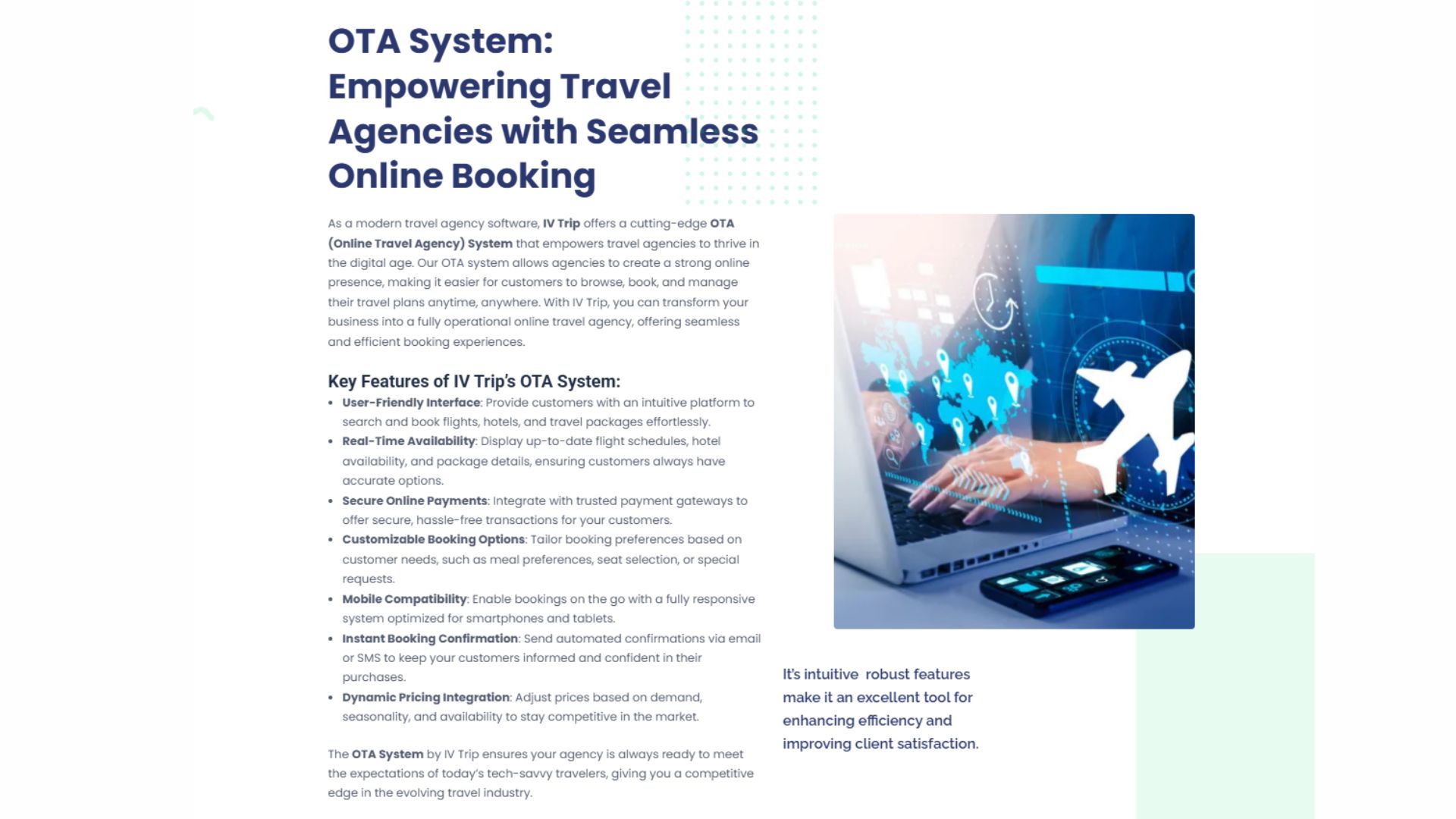
Evaluation Guide: When to Use Off the Shelf Software Vs Custom Software
| Evaluation Area | Off the Shelf Travel Business Software | Custom Travel Business Software |
| Integration Flexibility | Prebuilt systems may struggle to sync with your existing travel tech stack. | Developed to fit seamlessly with your current tools, APIs, and workflows. |
| Time to Launch | Ideal for fast implementation when immediate functionality is needed. | Requires more time, but results in a fully personalized travel software setup. |
| Budget Compatibility | Lower upfront cost makes it attractive for cost-conscious travel businesses. | Higher initial spend, but greater long-term cost efficiency and value. |
| Growth Support | May hit limitations as your travel business expands. | Scalable architecture that grows with your operations and customer base. |
| Security Standards | General security settings that might not meet all compliance benchmarks. | Advanced, industry-specific security built to suit regulatory requirements. |
| Ongoing Control | Maintenance and updates rely on the vendor’s timeline and priorities. | Full autonomy over improvements, updates, and software evolution. |
| Market Differentiation | Common features shared across users; harder to stand out. | Purpose-built functions help you deliver a unique travel experience. |
| Feature Precision | Offers broad tools that may not match specialized needs of your travel business. | Functionality is shaped around your exact business model and travel services. |
| Return on Investment | Subscription or licensing fees can add up over time. | Higher ROI long-term due to reduced recurring costs and tailored efficiency. |
This framework directly supports understanding of off the shelf software vs custom software decision-making in the travel industry.
Cost Comparison: Off the Shelf Software Vs Custom Software
Custom Software
- Initial Development: $$$ (One-time or staggered)
- Maintenance & Updates: Custom or included if under retainer
- Long-Term ROI: High (no license renewal or per-seat costs)
Off-the-Shelf Software
- Setup Fee: $ or free
- Monthly Subscription: $$ (per user/module)
- Add-on Costs: $$$ for advanced features
- Total Cost Over 5 Years: Can exceed custom solutions for large agencies
Again, comparing off the shelf software vs custom software shows how custom solutions often win in long-term value.

Travel Agency Software Features to Look For
Whether choosing off the shelf software vs custom software, look for these key features:
- Booking Engine Integration (GDS, LCC, hotel APIs)
- Quotation & Invoicing Automation
- Lead Management & CRM
- Multi-Language & Multi-Currency Support
- Custom Tour Builder
- Real-time Reporting & Business Intelligence Dashboards
- Mobile-Friendly Interface
- Role-Based Access & Admin Control
- Integration with Accounting Software
- GDPR & Data Security Compliance
Search Engine Optimization (SEO) Benefits of Custom Software
While often overlooked when choosing travel business software, the impact on your online visibility (SEO) is a crucial factor, yet another area where off the shelf software vs custom software matters.
- Faster Loading Times & Better UX: Custom travel software platforms are often lighter and built with performance in mind. Faster loading speeds and a smoother user experience (UX) are direct ranking factors for Google. Websites and portals that load quickly and are easy to use tend to rank higher.
- SEO-Friendly Architecture: In between off the shelf software vs custom software,with custom travel software, you have complete control over technical SEO elements. You can integrate SEO-friendly URLs, manage meta tags, optimize image alt text, and directly implement structured data (schema markup) into your platform. This helps search engines better understand your content and services.
- Content Control and Landing Pages: Custom client portals or booking engines allow better control over creating unique, SEO-optimized content and dedicated landing pages for specific destinations, packages, or services. This is essential for attracting organic traffic and generating leads for your travel business software.
- Mobile-First Design: A custom solution can be built with a truly mobile-first approach, ensuring seamless performance and user experience. This is critical for Google’s mobile-first indexing.
This makes custom travel agency software a strategic advantage not only for operations but also for digital marketing and lead generation efforts.
Best of Both Worlds: Hybrid Travel Software Models
This hybrid strategy is often discussed when evaluating off the shelf software vs custom software, especially for travel businesses needing phased transitions.
- Using Off-the-Shelf as a Base: You might use a standard off-the-shelf GDS or a basic CRM as your core system.
- Developing Custom Modules: You develop specific custom modules to address your unique pain points or offer specialized services. For example:
- A custom booking engine for your unique tour packages that integrates with the off-the-shelf GDS for flights.
- A bespoke analytics dashboard that pulls data from multiple sources.
- A dedicated mobile app for your clients or agents.
- The base software does not support a custom integration for specific local payment gateways.
This strategy balances the speed of deployment for core functions and the flexibility to meet specific needs. It’s beneficial when you need a phased digital transformation, tackling critical areas with custom solutions first.

Frequently Asked Questions (FAQs): Off the Shelf Software Vs Custom Software
- What’s the main difference between off the shelf software vs custom software?
Off-the-shelf travel solutions are ready-made, generic systems designed for broad use. In contrast, custom travel software is built specifically to meet an individual travel agency’s unique needs, workflows, and branding.
- Off the shelf software vs custom software- is custom travel software worth the higher initial investment?
Custom travel software is often worth the investment, especially for growing agencies aiming for significant automation, strong digital branding, and a competitive edge. It offers higher ROI through increased efficiency and scalability in the long term.
- Can I migrate from off-the-shelf to custom travel agency software later?
Many agencies start with off-the-shelf travel solutions and migrate to custom travel agency software. As their business grows, their needs become more complex, and they seek greater control and customization.
- How long does it typically take to build custom travel software?
In the debate of off the shelf software vs custom software, one key consideration is development time. Building custom travel software typically takes 6 to 12 weeks for a basic version, and several months for a full-scale, feature-rich solution. This longer timeline reflects the tailored nature of custom solutions, offering flexibility and scalability not found in most off-the-shelf platforms.
- Is off-the-shelf travel software secure for client data?
Security is a major factor in comparing off the shelf software vs custom software. Reputable off-the-shelf travel software providers do implement robust security measures, but responsibility is shared, and you may have limited control over configurations. With custom travel software, you gain full authority to define and enforce custom security protocols, resulting in more adaptable and potentially stronger protection for sensitive client data.
- Can custom travel software support integration with global GDS and local airlines in Bangladesh?
A key advantage of custom travel software is its ability to seamlessly integrate with global GDS systems like Amadeus and Sabre, specific local airlines in Bangladesh (e.g., Biman Bangladesh, US-Bangla, NovoAir), and local payment gateways.
- Is there a maintenance cost for custom travel agency software after Development?
Custom travel software requires ongoing maintenance, updates, and occasional enhancements to ensure optimal performance, security, and compatibility with new operating systems or third-party APIs. These costs are usually predictable and part of a service contract.
- Can off-the-shelf travel software handle group tours or highly custom itineraries effectively?
When evaluating off the shelf software vs custom software, it’s clear that off-the-shelf travel solutions often fall short in handling complex group tours or highly customized itineraries. These platforms typically offer fixed features with limited flexibility. On the other hand, custom travel software is built specifically to support intricate planning, enabling unique workflows, automated processes, and bespoke features that align with your agency’s exact needs.
- Which option is better for developing a dedicated mobile app for my travel agency?
In the off the shelf software vs custom software comparison, custom travel agency software is the clear winner for developing a dedicated mobile app. Custom solutions allow you to build a fully branded, native application that integrates seamlessly with your backend systems and delivers a personalized experience for both clients and agents — something off-the-shelf platforms rarely provide.
- What kind of reporting and analytics are possible with custom travel business software?
Custom travel software offers highly flexible and comprehensive reporting capabilities. You can design fully customized dashboards and generate real-time analytics on sales trends, agent performance, profit margins, customer behavior, and virtually any other metric crucial to your travel business software strategy.
Deciding between off the shelf software vs custom software is a strategic business choice. Custom travel agency software offers flexibility, deeper branding, and long-term growth potential. On the other hand, off-the-shelf travel business software helps small agencies quickly enter the market with minimal setup.
At IV Trip, we offer both types of solutions. Our consultants can help you evaluate your needs, define your budget, and design the most effective system to grow your agency.
Ready to Transform Your Travel Business?
Contact IV Trip today for a free consultation. Let our experts help you decide, off the shelf software vs custom software- which is best for you.
Visit ivtrip.implevista.com or email us at info@ivtrip.com to get started.
